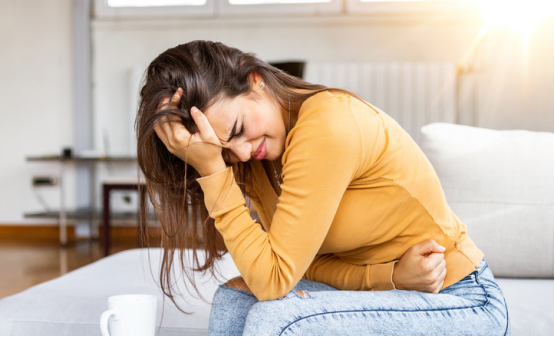Have you ever felt unexplained stomach pain or a persistent feeling of fatigue? If so, you may be overlooking a condition called ulcerative colitis (UC), an inflammatory bowel disease (IBD) that primarily affects the colon and rectum. Recognizing the early and often subtle symptoms of UC is essential for prompt diagnosis and effective treatment.

Hidden Symptoms of Ulcerative Colitis
- Abdominal Pain and Cramping:Pains associated with UC are often confused with regular abdominal pain and are usually felt in the lower abdomen. They can range from mild discomfort to severe cramping and are often temporarily relieved by a bowel movement.
- Frequent Diarrhea:Unlike occasional diarrhea caused by diet or infection, UC-related diarrhea is persistent and may be accompanied by urinary urgency and, in severe cases, incontinence. The stool often contains blood or mucus.
- Rectal Bleeding:Blood in the stool can be alarming and is a telltale sign of ulcerative colitis. It occurs due to inflammation and ulcers in the lining of the colon.
- Fatigue:Chronic inflammation and frequent bowel movements can lead to severe fatigue. This is more than just fatigue, it's a debilitating exhaustion that affects daily life.
- Unwanted weight loss:Poor nutrient absorption and the body's increased energy expenditure due to chronic inflammation can cause unintended weight loss.
- Anemia: Blood loss and inflammation in the stool can lead to anemia, which is characterized by symptoms such as pale skin, shortness of breath, and dizziness.
- Urgent need to have a bowel movement:Inflammation of the colon can cause a constant urge to have a bowel movement, even when little or no bowel movement occurs.
- Joint pain and swelling:Ulcerative colitis can have systemic effects, causing inflammation in the joints that leads to pain and swelling, a condition called enteropathic arthritis.
- Skin problems:Inflammation may appear on the skin and lead to conditions such as erythema nodosum (tender, red nodules, usually on the lower legs) or pyoderma gangrenosum (painful ulcers).
- Eye irritation:Conditions such as uveitis (inflammation of the eyes) can develop and cause redness, pain, and vision problems.
Available treatment options for ulcerative colitis
Treatment of ulcerative colitis usually requires a combination of medications, lifestyle changes, and sometimes surgery. There are 4 main treatments.
- Medications
- Aminosalicylates (5-ASA): These drugs reduce inflammation in the lining of the intestine. They are usually the first-line treatment for mild to moderate ulcerative colitis.
- Corticosteroids: These drugs are used to relieve symptoms short-term during a flare and help reduce inflammation, but are not suitable for long-term use due to side effects.
- Immunomodulators: These drugs suppress the immune system to reduce inflammation. They are often used when 5-ASA and corticosteroids are ineffective.
- Biologics: These are newer drugs that target specific immune system pathways. They are often used to treat moderate to severe ulcerative colitis.
- JAK inhibitors: These drugs disrupt the Janus kinase pathway, which is involved in the inflammatory process.
- Lifestyle changes
- Dietary modifications: There is no one-size-fits-all diet for ulcerative colitis, but some people find relief by avoiding trigger foods such as dairy, high-fat foods, and high-fiber foods during a flare. A dietitian can help develop a nutrition plan.
- Stress management: Stress can make symptoms worse. Techniques such as yoga, meditation, and counseling can help keep stress levels in check.
- Exercise regularly: Moderate exercise can improve overall health and reduce stress.
- Surgery:In severe cases, where medications and lifestyle changes don't control the disease, surgery may be necessary. The most common surgical procedure for ulcerative colitis is a colectomy, in which part or all of the colon is removed.
- Complementary therapies:Some patients find relief with alternative therapies such as acupuncture, probiotics, and herbal supplements. It's important to discuss these with your doctor to ensure they complement conventional treatment.
Recognizing the hidden symptoms of ulcerative colitis and seeing a doctor promptly can greatly improve your quality of life. If you suspect you have ulcerative colitis, contact your doctor for a thorough examination and a personalized treatment plan. Early intervention and a comprehensive approach to treatment can help control ulcerative colitis symptoms and maintain a better quality of life.





